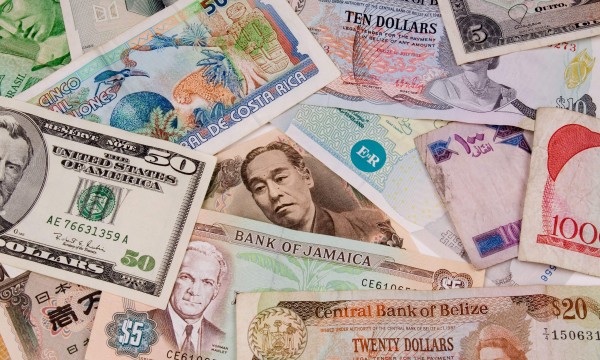When travelling, knowing how to buy foreign currency is vital. Otherwise, you risk losing money. Here are five ways to avoid exchange rate rip-offs if you're travelling abroad.
- Browse Categories
- All Tips
-
Home & Garden
- All
- Appliances
- Bathroom
- Cleaning
- Crafts
- Decorating
- Electrical
- Flooring
- Furniture
- Garage Door
- Gardening
- Green Living
- Heating
- Home Alarm Systems
- Home Maintenance
- Home Remedies
- Home Security
- Home Staging
- House Sitting
- Junk Removal
- Kitchen
- Lawn Care
- Lock Systems
- Moving
- Outdoor Living
- Pest Control
- Plumbing
- Renovation
- Roofing
- Snow Removal
- Storage
- Tools
- Tree Service
- Health
- Family
- Travel
- Auto
- More Tips

5 ways to avoid exchange rate rip-offs if travelling abroad
November 24, 2014

Financial institutions, such as banks and foreign exchange outlets, buy and sell foreign currencies on open markets. They then sell these currencies to consumers.
- The rate used to sell fluctuates based on market prices. That's why, depending on when the transaction happens, consumers will get varying amounts for their currency.
- Before you travel, below are some things to consider when exchanging money for foreign currencies.
1. Ditch the debit card
Using debit cards at foreign ATMs can be very convenient, but they can also be one of the costlier options.
- Using a debit card can be convenient because there’s no need to search and shop for places that offer currency exchange. And nowadays, cards from your local financial institution are widely accepted.
- However, the downside of using ATMs is that exchange rates are not usually posted in advance of the transaction and service fees are charged.
- If not careful, the cost of the withdrawal can be significantly higher than other options.
2. Stop by an exchange bureau
While exchange bureaus are available in nearly all countries to help exchange money to the host country’s currency, this is not a free service.
- The fees charged at bureaus are generally lower than those of ATM fees, and exchange rates are competitive with financial institutions such as banks.
3. Exchange in your home country
Exchanging money at your local banking branch can be a good option for travellers. Depending on the destination, banks hold enough reserves of foreign cash on hand to make exchange rates competitive.
- The branch will charge a marginal spread, however even with the spread the rate is usually competitive.
- It's important to note that rates vary depending on the amount to be exchanged as well. Banks often offer better rates for larger sums.
4. Use your credit card
Using a personal credit card to make purchases abroad is an option and rates for major cards are usually competitive. However it is a good idea to double check what the rate is before making a purchase. Most credit card companies offer online exchange rate calculators that quote rates in real-time.
5. Consider the U.S. dollar
In some cases, it’s better to use a widely accepted currency such as the U.S. dollar (even if not travelling to the U.S.).
- Some countries may not widely accept a domestic currency (e.g. the Canadian dollar) and therefore using that currency can become a lot more expensive to exchange than a more widely used one.
- In other cases, where your domestic currency is stronger against the host country's and is widely accepted, it's better to do a straight exchange.
Following these basic principles when exchanging your money while travelling can save you unnecessary fees and expenses.






